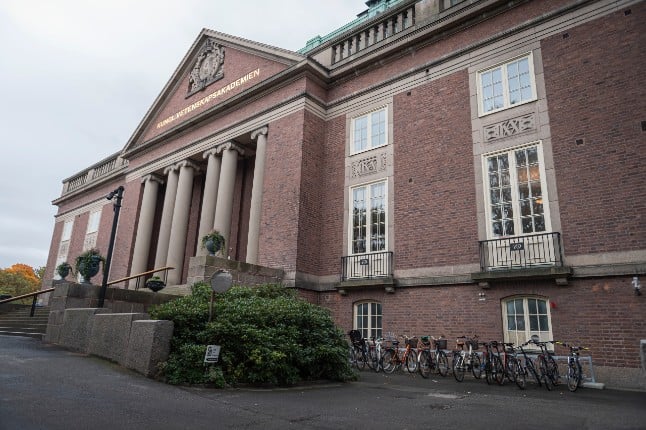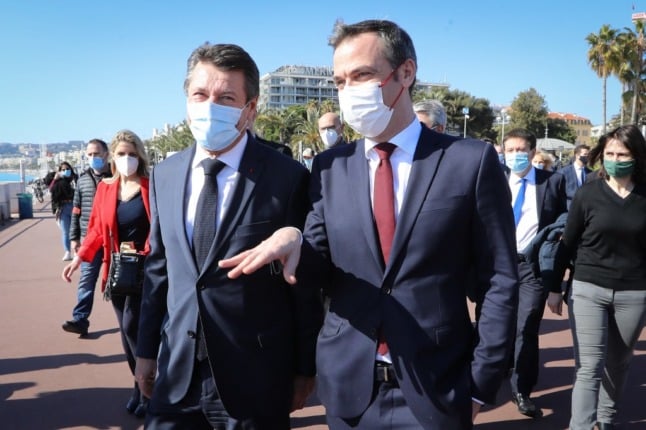MASKS
Swedish Academy of Sciences calls for face masks to slow infection
The Royal Swedish Academy of Sciences on Thursday recommended face masks as an "important measure" to reduce infection, increasing the pressure on the Public Health Agency of Sweden, which has yet to recommend them to the public.
Published: 19 November 2020 16:10 CET

The Royal Academy of Sciences is the most august scientific body in Sweden. Photo: Naina Helén Jåma/TT
In a report issued on Thursday, the academy's Covid-19 expert group concluded that ventilation and masks were “important measures to reduce the spread of infection indoors and on public transport”.
“There is today new experimental and epidemiological evidence that face masks reduce the risk for airborne transmission, and none that it might have the opposite effect,” said the group's chair Staffan Normark, who is professor in molecular microbiology at Karolinska Institute.
“It is of course just as important to follow the recommendations the Public Health Agency has issued. But we need all the tools in the toolbox to bring down the infection rate rapidly, and among them are face masks and ventilation.”
The Academy which was founded in 1739 by the naturalist Carl Linnaeus, and awards the Nobel prizes in Physics, Chemistry and Economics, meaning its intervention in the mask question will carry considerable weight.
Karin Tegmark Wisell, the head of the Public Health Agency's microbiology division, on Thursday defended the decision not to recommend masks, saying that the few new studies that had come out on them recently had failed to conclusively demonstrate their effectiveness.
“There have been a few reports over the last few weeks. The interpretation of those reports shows clearly that the state of knowledge remains uncertain,” she said.
“In Sweden we are trying as much as possible to use social distancing as the number one tool. We do not currently think recommending face masks is on the agenda.”
The new report comes closely on the heels of Michael Ryan, executive director of the WHO Health Emergencies Programme, recommending that countries like Sweden consider face masks.
“Masks work. Masks work in particular environments where you can't maintain physical distance, where you're in a crowded setting,” he said. “We would like people to look at all aspects of how you protect yourself, to look at your risk-score in a sense on a weekly basis.”
Url copied to clipboard!


 Please whitelist us to continue reading.
Please whitelist us to continue reading.
Jackson, ever heard that correlation and causation are NOT the same? If there were no masks in the denser populated regions you are referring to, it would be EVEN WORSE. The science is clear and has been for many months.
At long last. And Jackson, it is not per capita deaths that counts, it is the number of deaths per confirmed Covid-19 cases that counts. A huge portion of the population of Sweden has not yet been infected, but that portion is growing fast, and it takes some 28 or so days for the number of deaths to follow the number of confirmed cases.
Correction – I should have written “A huge portion of the population of Sweden has not yet been infected, but that portion is shrinking fast”.
Masks don’t work. Countries that relied on them saw even worse second wave and many of them went into second lockdown. There is no real-life data proving that masks actually helped slow the infection down.